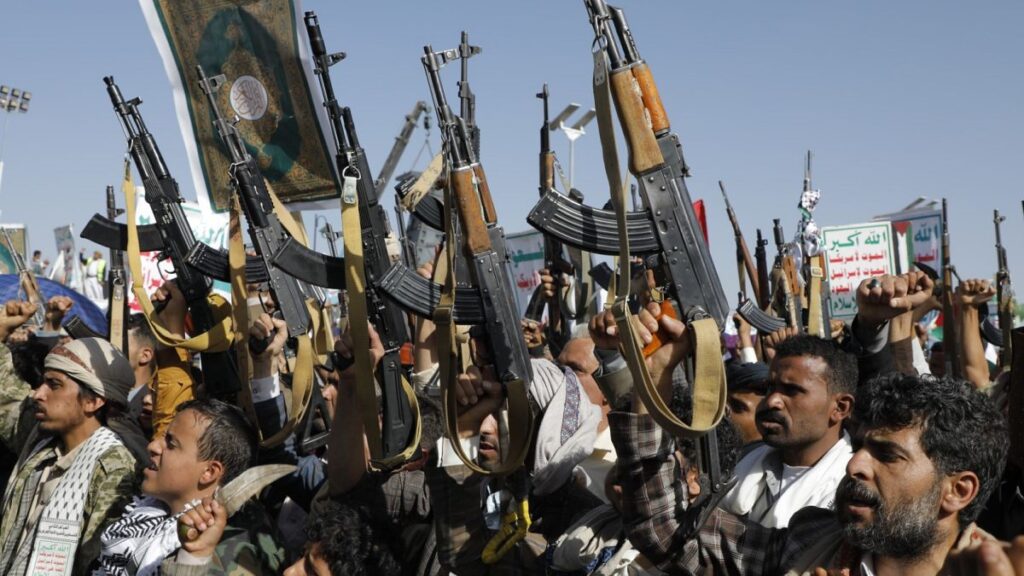The UN spokesperson called for the “unconditional” release of the eleven United Nations employees in Yemen arrested by pro-Iran Houthi rebels.
After the arrest under unclear conditions of eleven United Nations employees by Yemen’s Houthi rebels, UN spokesperson Stéphane Dujarric declared in New York that the Organization was “very concerned” by these developments. “We are actively seeking clarification from the Houthi authorities de facto on the circumstances of these detentions and, more importantly, to guarantee immediate access to these UN personnel”, he told reporters. “I can further tell you that we are using all available channels to ensure the safe and unconditional release of all as quickly as possible.”
Of the 11 people, the UN said nine were men and two were women. Six of them worked for the United Nations human rights agency, while one each worked for its special envoy’s office, its development arm, UNICEF, the World Food Program and the UNESCO. The Mayyun Organization for Human Rights, which also reported that UN staff had been detained, named other humanitarian groups whose employees have been detained by the Houthis in four provinces controlled by the Houthis. the Houthis: Amran, Hodeida, Saada and Saana.
“We condemn in the strongest terms this dangerous escalation, which constitutes a violation of the privileges and immunities of United Nations employees granted to them under international law, and we consider thatthese are oppressive, totalitarian and blackmail practices aimed at obtaining political and economic gains”, the organization said in a statement.
Save the Children told AP that she was “concerned about the fate of one of our staff members in Yemen and that she was doing everything in her power to ensure his safety and well-being.” CARE International also said that one of its employees had been arrested without reason.
Activists, lawyers and others also launched an open letter online, calling on the Houthis to immediately release those detained, because if they do not, *that “contributes to isolating the country from the world”.*
Human Rights Watch, citing family members of those detained, said that “Houthi authorities did not reveal the locations of the people they detained or allow them to communicate with their employers or families.”
Yemen’s Houthi rebels and their affiliated media have not reported these detentions, although military spokesman Brigadier General Yahya Saree on Friday evening claimed responsibility for attacks on ships that had not been reported damaged or recognized by international authorities.
The US military’s Central Command said the Houthis had launched four anti-ship ballistic missiles over the past day, without causing damage. Moreover, American forces destroyed two missiles, five drones and a patrol boat, according to the press release, which the rebels did not recognize.
Iran-backed rebels also reported new US-led airstrikes on Friday around the Red Sea port city of Hodeida and then in the capital, Sanaa.
Several hit Hodeida airport, the Houthi-controlled SABA news agency said, where rebels are believed to have launched attacks previously targeting shipping in the area.
It is not clear what triggered these detentions. Former employees of the US embassy in Sanaa, which closed in 2015, were also arrested and detained by the Houthis. However, the arrests come as the Houthis struggle to have enough currency to support the economy in the areas they control.
“Internal tensions and conflicts could spiral out of control and lead Yemen to complete economic collapse”warned Yemeni journalist Mohammed Ali Thamer in an analysis published by the Carnegie Endowment for International Peace.
Bloomberg reported Thursday that the United States plans to further increase economic pressure on the Houthis by blocking their sources of income, including a planned $1.5 billion Saudi payment to cover the salaries of government employees in rebel-controlled territories.
The war in Yemen has killed more than 150,000 people, including fighters and civilians, and created one of the worst humanitarian disasters in the world, killing tens of thousands more. Houthi attacks on shipping, linked to the war in Gaza, have helped distract attention from their domestic problems and the stalemate of the war. But they have been facing mounting casualties and damage for months from U.S.-led airstrikes targeting the group.

